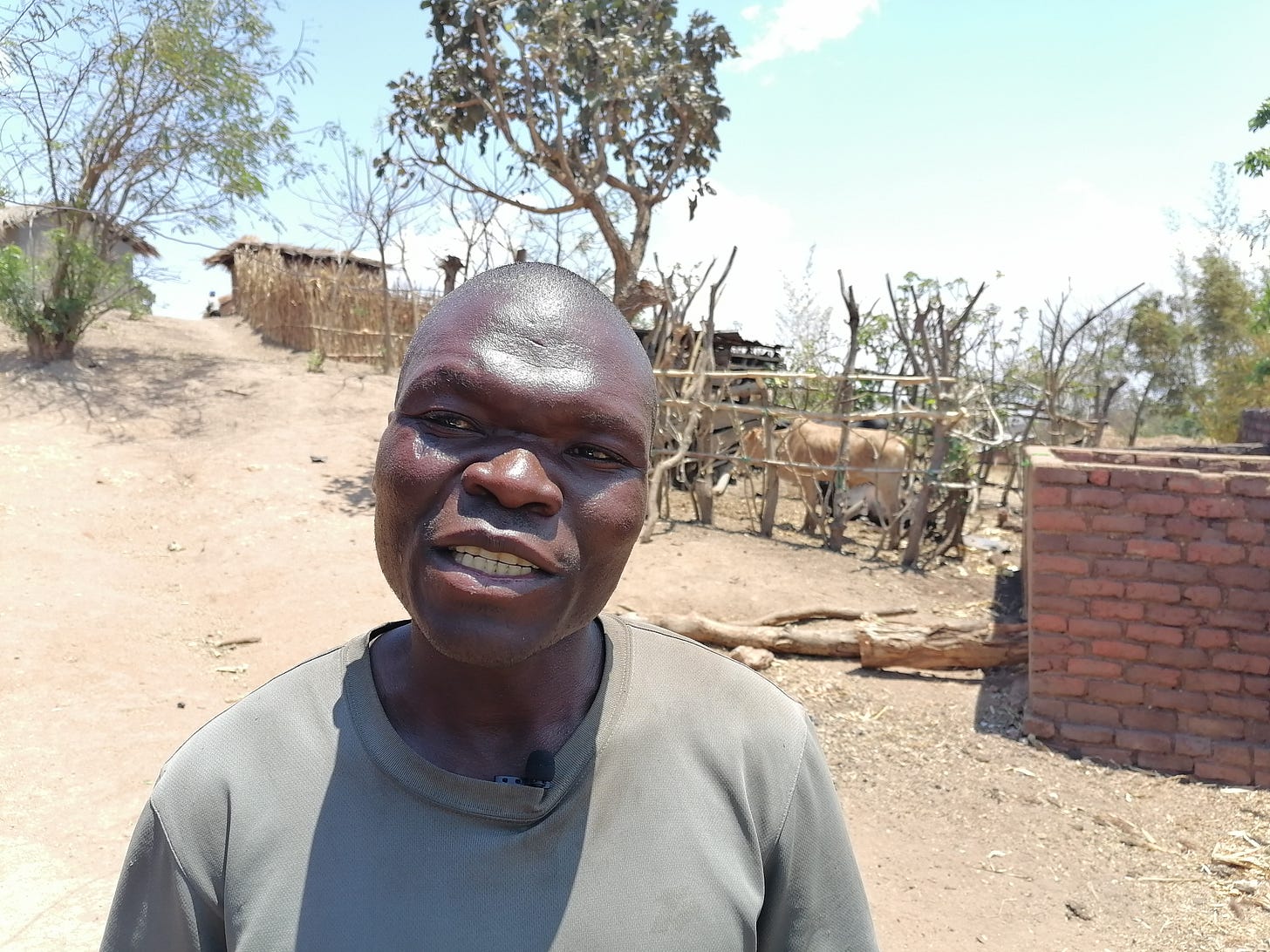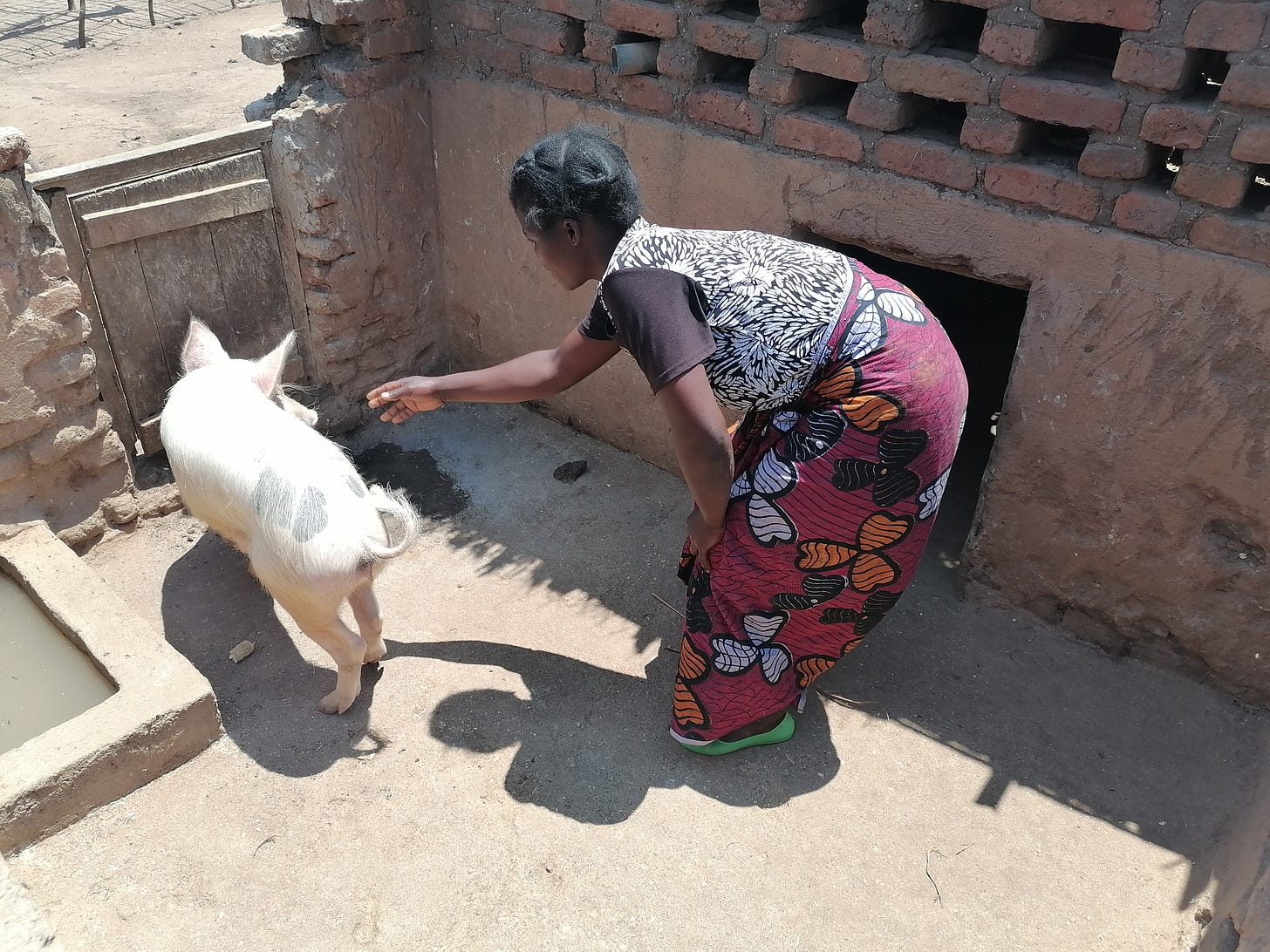ANIMAL HUSBANDRY – Farmers diversification pivotal to overcome vulnerability to climate change
Amidst a cloud of climate uncertainity farmers in Dowa are spearheading need-based adaptation, a resilience building intervention to ensure household self-reliance to overcome vulnerability

DOWA, Malawi (Planet Defence) - Farmers in Dowa are leaving no stone unturned as part of a broader gender empowerment discourse to ensure household self-reliance to overcome vulnerability brought about by the negative effects of climate change.
The move is part of the need-based adaptation, a resilience building intervention that ensure adaptation is adequately implemented to benefit most vulnerable groups including people with disabilities.
One such successful intervention is piggery production under improved breed pass on programme. Youthful Gloria Patrick is one of the beneficiaries at Mkuziwaduka in Traditional Authority Mponela in Dowa district.
Thanks to the initial piglets she plus others farmers received from Churches Action in Relief and Development (CARD) under the Promoting Agro-ecology Transition for Enhanced Resilient Agriculture (PAET-ERA) supported by Bread for the World of Germany that runs from 2022 - 2024.
Patrick and scores of other women farmers were mentored in good piggery husbandry practices so that they are able to manage animals once under their custody in terms of housing and food and ensure they are healthy and productive.
Pigs are naturally those domesticated animals that are more susceptible to African Swine Fever. This is a viral disease that inflict huge losses when flock is affected, hence they need to be handled with the utmost care.

“We use manure from our khola which is mixed with ash plus other organic substances to make them effective when applied to our garden. We also sale the same manure to generate income which we use at household level to address our needs. This is working well as part of the greater agro-ecology intervention to boost soil fertility and crop productivity in the process,” Patirck shares her experience.
Patrick story is that of encouragement and show elements of passion and enhanced resilience among subsistence farmers to overcome challenges faced at village level. She has already as a requirement transferred to next farmer piglets as a requirement for the pass on chain empowerment initiative.
“We sold pigs and managed to buy fertilizer. We then applied the fertilizer to our maize at our dimba garden which we grow using winter irrigation. After harvesting the maize at the dimba, we sold the maize at the sum MK700,000.00 and bought additional bags of fertilizers for rain-fed agriculture. We then later, applied this second lot of fertilizer to our tobacco field. Upon harvesting the tobacco, we sold it and managed to buy a new motor bike,” a smiling Patrick shared her resilient and touching story from Mkuziwaduka village.
Other than the success registered Patrick and the family have also managed to send to nearby secondary school their one of the children in form one.
She hailed the link between manure and dimba production saying the manure are improving fertility to the degraded soils hence leading to higher crop productivity in the process.
However, more convenient was the aspect of using solar powered pumps to water their crops as this has lessen the burden and time compared to using manual water cans.
She advised other farmers to work hard in order for them to achieve their dreams especially now as climate change continue to show its ugly face among rural subsistence farmers, youths, women and those with disability.
In a related development, Annes Malamba a physically challenged women concurred with Patrick that they initially started as a village bank. They were also involved in planting some trees in 2022.
We had to plant trees because my garden is located on an area where water always flood my crops annually hence catchment conservation is a must she lamented.
“My garden is subjected to flooding annually and this has had a bearing on my harvest. The reason is the garden is water prone and this poses challenges to crops,” she explained.
It is now time to diversify in other areas of production so that we can overcome the challenges that continue to face smallholders like us at household level.
At Mtande Two village located in Traditional Authority Msakambewa, Goveya Chimwendo a lead farmer says CARD has empowered farmers to realize there is a connection between animal husbandry practices such as pig rearing to food security in the wake of climate change.
We have been trained by CARD to ensure that we provide good housing to pigs with cement floor. We need to clean the pig khola on a weekly basis as a routine so that we avoid ticks.
“We are 15 farmers and one of the most important things we are discouraged from doing is to avoid buying meat from markets anyhow. This will prevent contamination to the animals with African Swine Fever,” says Chimwendo in an interview.
Animal husbandry is good practice as it provides the much-needed manure to be added to our degraded soils. This helps to improve crop probability in the wake of skyrocketing prices of fertilizers.
Now wonder, that as you can see, I have chickens, goats, pigs and cattle including an ox-cart.
The manure produced by these domesticated animals are improving and adding soil nutrients this is leading to good harvests. With animal rearing we have good harvests all the time.
As evidence of the importance of manure, “I have built a plot where students rent and I get rental fees monthly. This underscores the need for us as farmers to diversify our farming in the wake of climate change,” Chimwendo said.
Above all we are also restoring the environment in the process by ensuring we plant more trees. This will ensure biodiversity is restore in the process.



